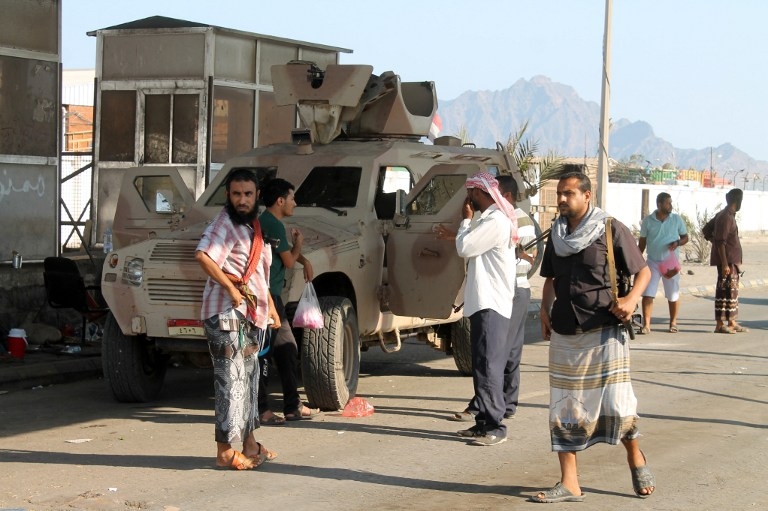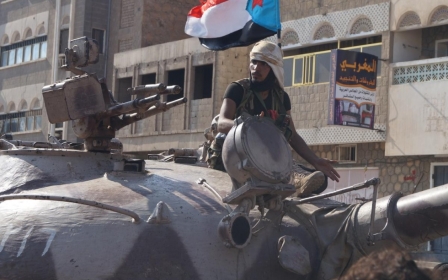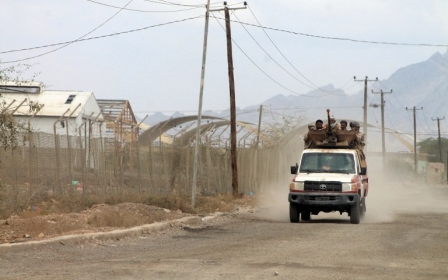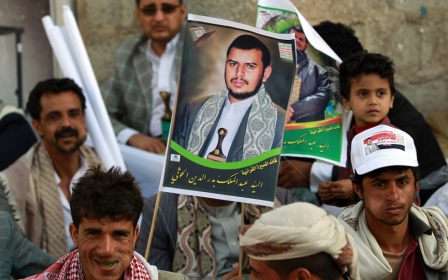Yemen's Houthi rebels push deep into Aden, al-Qaeda frees 300 in jailbreak

Rebels battled their way into the heart of Yemen's main southern city Aden where fighting raged Thursday in the former stronghold of President Abd Rabbuh Mansour Hadi, who has fled overseas.
There are unconfirmed reports of Saudi-led ground troops of entering Aden after Houthi militiamen backed by forces loyal to former president Ali Abdullah Saleh seized Aden's central Crater district.
Concern is growing over the number of casualties after heavy clashes between local militia fighters and rebel forces.
Witnesses have reported bodies lying in the street after intense rebel shelling and sniper attacks.
The fierce fighting has continued despite seven nights of airstrikes by a Saudi-led coalition.
The Iran-backed Houthi rebels and allied army units loyal to former Saleh were advancing on the presidential palace after seizing the key district of Khor Maksar, home to several foreign consulates and UN offices, residents said.
At least 19 people were killed on Wednesday in clashes pitting the rebels against armed residents and local militia, officials said.
The Houthi rebels have reportedly advanced deeper into Aden. Last week the rebels appeared to be hours from overrunning the city. This forced President Abd Rabbuh Mansour Hadi to flee to Saudi Arabia and spurred Yemen's northern neighbour to begin airstrikes.
The BBC's security correspondent Frank Gardner, in Riyadh, says that if reports of rebel tanks entering the centre of the southern port city are confirmed, then the rebels will have consolidated their grip on the most important parts of Yemen.
A spokeswoman for the aid agency Medecins Sans Frontieres (MSF) told the BBC that its hospital in Aden had received more than 500 injured people from all sides in the conflict over the last two weeks.
The UN has also expressed alarm at the rising number of civilian deaths in Yemen.
Saudi-led coalition General Ahmed Asir, told the BBC "it was a hard task to target" the rebels.
The coalition is "using all intelligence resources to make sure they are not hitting the wrong target. We do not hit any target without making sure it is a Houthi or troops loyal to former President Saleh," he said.
President Hadi had taken refuge in Aden after the Houthis took full control of the capital Sanaa in January and placed him under house arrest. He fled to the southern city from the rebel-held capital in February.
But he went into hiding last week as the rebels advanced on his last remaining bastion and later resurfaced in the Saudi capital.
His aides have said he has no immediate plan to return to Aden.
The latest violence comes as dozens of Yemenis are reported to have crossed the Gulf of Aden in small boats to get to Somalia and Djibouti to escape fighting and airstrikes on the city of Taiz.
The arrival of the Yemeni refugees reverses a decades-old trend in which thousands of Somalis have sought sanctuary in Yemen to escape their own country's violence.
300 prisoners freed by al-Qaeda jailbreak
While the Houthis have been pushing deeper into Aden, al-Qaeda militants stormed a prison in southeastern Yemen on Thursday, freeing several hundred inmates including one of their leaders, a security official said.
Khalid Batarfi, a senior al-Qaeda figure who had been held for more than four years, was among more than 300 prisoners who escaped from the jail in Hadramawt province, the official told AFP.
Two prison guards and five inmates were killed in clashes, the official said.
Batarfi is among al-Qaeda in the Arabian Peninsula's (AQAP) top regional commanders, known for his leading role in a 2011-2012 battle with Yemeni government troops during which militants seized swathes of territory in the south and east.
Al-Qaeda militants also clashed on Thursday with troops guarding the local adminstration complex in the provincial capital Mukalla, a branch of the central bank and the police headquarters, the official said.
Observers have warned that Yemen-based AQAP, classified by the United States as the network's deadliest franchise, could exploit the unrest to strengthen its presence in the country.
New MEE newsletter: Jerusalem Dispatch
Sign up to get the latest insights and analysis on Israel-Palestine, alongside Turkey Unpacked and other MEE newsletters
Middle East Eye delivers independent and unrivalled coverage and analysis of the Middle East, North Africa and beyond. To learn more about republishing this content and the associated fees, please fill out this form. More about MEE can be found here.




